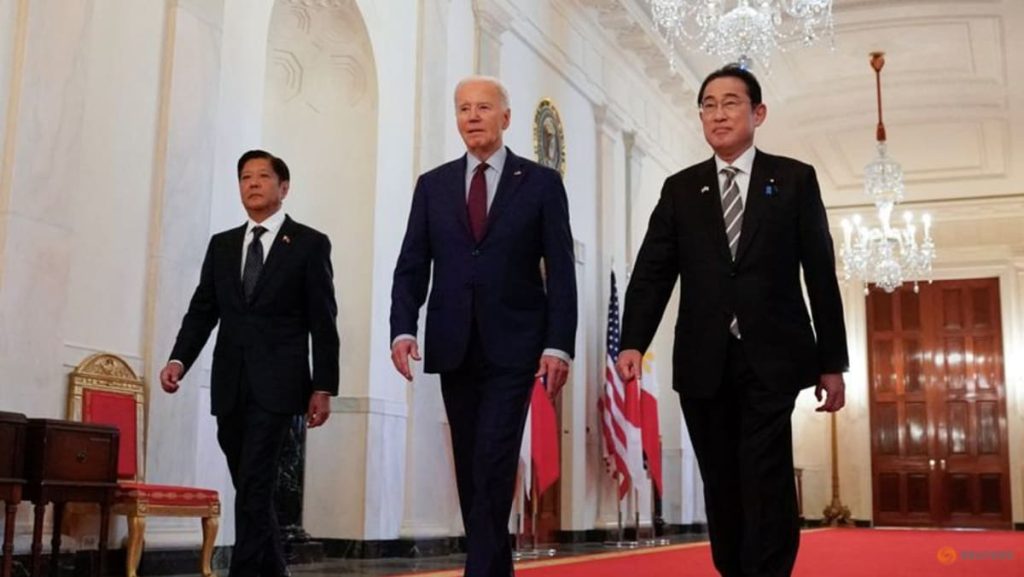Philippine President Ferdinand Marcos Jr expressed the importance of a trilateral agreement between the Philippines, the United States, and Japan in changing the dynamic in the South China Sea and the region. The agreement aims to address concerns about China’s aggressive behavior in the area, which is a key maritime route for over US$3 trillion in annual ship-borne commerce. Despite the focus on deepening economic and security relations among the three countries, Marcos emphasized that the agreement was not meant to target any specific country.
China’s claims to almost the entire South China Sea have been a point of contention, particularly following a 2016 ruling by the Permanent Court of Arbitration that found Beijing’s claims to have no legal basis. Recent incidents between Philippine and Chinese ships, including the use of water cannon and heated verbal exchanges, have heightened tensions. In response to what it perceived as negative comments against China, Beijing summoned the ambassadors of the Philippines and Japan. These developments coincide with increased security engagements between the Philippines and the United States, as well as plans for a reciprocal troop pact with Japan.
The visit to Washington also included discussions on expanding US access to Philippine bases and additional infrastructure projects at these bases, with President Biden requesting US$128 million for such initiatives. Marcos expressed confidence that approximately US$100 billion in potential investment deals from the summit over the next five to 10 years will materialize. In meetings with US officials, including Defense Secretary Lloyd Austin, assurances of continued US support for collective security and prosperity in the region were reiterated, highlighting the significance of cooperation among the three countries in addressing regional challenges.
Overall, the trilateral agreement between the Philippines, the United States, and Japan represents a significant step in addressing concerns about China’s actions in the South China Sea. By deepening economic and security relations among the three countries, the agreement seeks to change the dynamic in the region without targeting any specific country. The ongoing tensions between the Philippines and China, as well as the increased security engagements with the US and expected troop pact with Japan, underscore the complex dynamics in the region. With a focus on infrastructure projects and potential investment deals, the agreement signals a commitment to enhancing regional security and prosperity through cooperation and dialogue.


